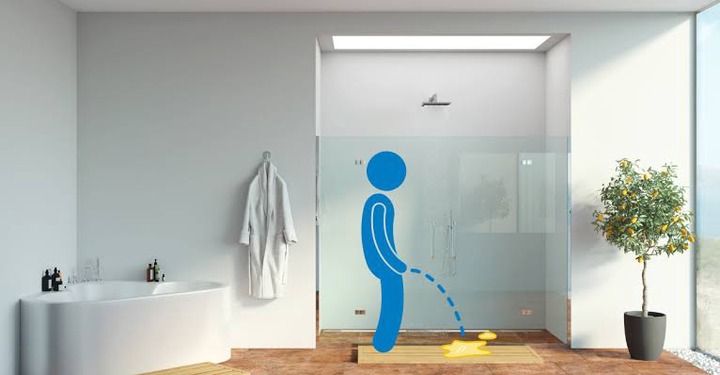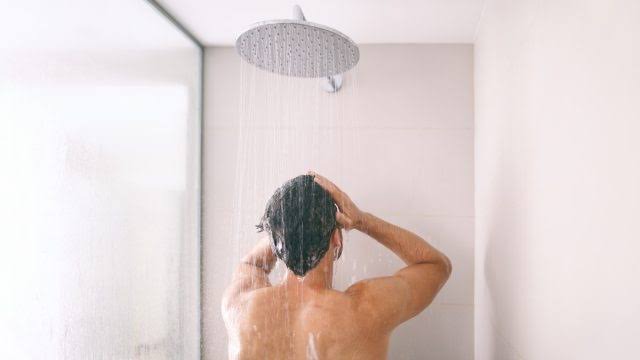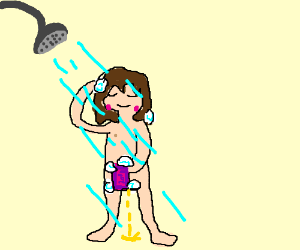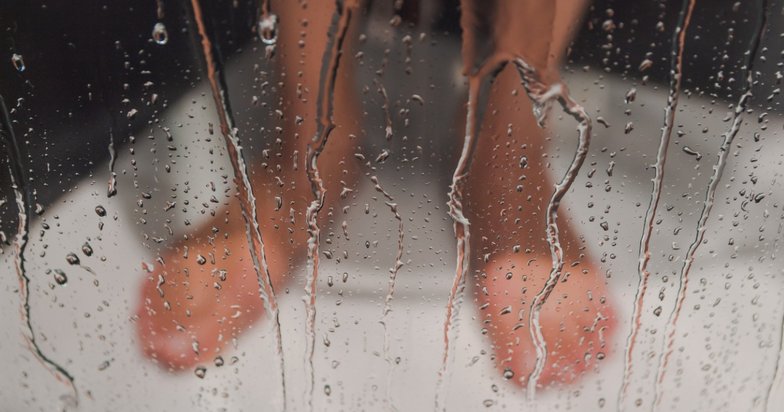When it comes to maintaining a proper shower routine, there are no one-size-fits-all requirements. Some people rinse off right after waking up in the morning. Some people like to do it at night as well. The issue is even more complex than this. According to certain studies on the internet, there are also disagreements between people concerning the parts of the body that should be washed and how often we should bath. Nonetheless, a doctor recommends one habit you should avoid when taking a shower. Read on to learn what you should not be doing during your cleanse.
When you are in the shower, you should not pee
The toilet may be just steps away, but some people feel free to urinate while scrubbing themselves off. Even though there are those who argue that it is a matter of cleanliness, a doctor believes that you should not pee in the shower because of the potential consequences it may have on your body.
Video uploaded to TikTok by Alicia Jeffrey-Thomas, MD, a pelvic floor physical therapist with a doctorate in physical therapy, cautions that you may accidentally train yourself to urinate when you hear the nozzle spray. According to her, when you pee in the shower, turn on the faucet or turn on the shower, then sit on the toilet to pee while the water is running, you are creating in your brain the association between the sound of running water and the need to pee.
By peeing in the shower, you may subconsciously train yourself to urinate when you hear the sound of water.
 In the first instance, it might seem bizarre to link bladder control issues and the tendency to pee in the shower. Jeffrey-Thomas, however, clarified her statement in a subsequent interview with BuzzFeed to explain that the Pavlovian reaction-or the Pavlovian response-is a psychological response.
In the first instance, it might seem bizarre to link bladder control issues and the tendency to pee in the shower. Jeffrey-Thomas, however, clarified her statement in a subsequent interview with BuzzFeed to explain that the Pavlovian reaction-or the Pavlovian response-is a psychological response.
The bladder relies both on signals that come from the stretching of the bladder walls as it fills up, as well as signals that come from the brain that let the bladder know when to contract so that it can urinate,” she explained. The goal is to avoid training your bladder to associate certain signals with urination. For example, peeing in the shower will often trigger the urge to pee when you hear running water (like when you wash your hands or wash your dishes) or when you are near water.
While the conditioned response may not be an issue for everyone, she pointed out that others might experience the effects in a way that is potentially embarrassing. It may seem like a minor inconvenience to some, but for people suffering from pelvic floor dysfunction, this may be life threatening (they will leak urine whenever they feel the urge to use the restroom), as she explains to Buzzfeed.
With the seemingly harmless habit, you could also harm your body.

However, it is not just the psychological conditioning that could be contributing to the problem. Depending on your body type, you may be going against your body’s natural system of holding on to urination when you need it by allowing yourself to urinate while standing in the running water.
From a pelvic floor perspective, the pose of standing or squatting in the shower is not conducive to the relaxation of the pelvic floor, Jeffrey-Thomas told Buzzfeed. “AMB (assigned male at birth) bodies have a prostate to support the bladder, whereas AFB (assigned female at birth) bodies—and those who have had affirmation surgery—don’t have the same level of support for their bladders.. The pelvic floor generally wants to remain contracted in a standing or hovering position (i.e., not peeing your pants at inappropriate times), so to urinate in those positions, one is bypassing these normal continence mechanisms, which can be problematic later on..”
If you find yourself in the position of being desperate to pee while bathing, there is, however, a way to overcome the problem. By squatting all the way down to the ground in the shower, it is possible to avoid this and allow the pelvic floor to relax, she said. However, according to her, “you are still doing the water/peeing association.”.
You might save yourself a lot of grief later on if you avoid peeing in the shower now.

At the end of her speech, Jeffrey-Thomas admits that her suggestion might come off a bit extreme. In contrast, she believes that paying attention to this one minor bathing detail now could have a tremendous impact on how your body functions down the road.
Among the many small habits we develop throughout our lives to contribute to our overall health, shower peeing does not come to mind immediately, but there are many other factors that contribute to our overall health. If anyone knew how to prevent embarrassment and frustration later in life, they would go back and do it again, no question.”

 Health6 days ago
Health6 days ago
 Entertainment1 week ago
Entertainment1 week ago
 Crime7 days ago
Crime7 days ago
 Comments and Issues1 week ago
Comments and Issues1 week ago
 Latest1 week ago
Latest1 week ago
 Football1 week ago
Football1 week ago
 Comments and Issues1 week ago
Comments and Issues1 week ago
 Comments and Issues1 week ago
Comments and Issues1 week ago

